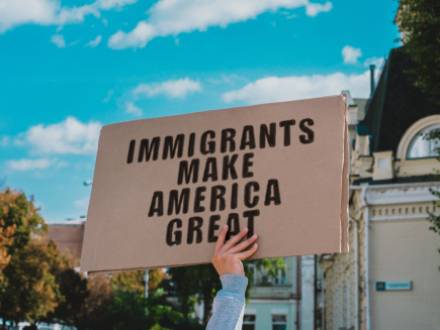Recent Changes to Family-Based Immigration Petitions | VA
 In late May of this year, the USCIS Policy Manual was upgraded to include additional or changed information on family-based immigration petitions. The upgrades include explanations on how approval notice errors are now handled and updated explanations regarding requests for consular processing or adjustment of status. Below, you will find additional information on these updates to family-based immigration petitions. If you have a family-based immigration issue, it can be beneficial to speak to a national immigration attorney from Immigration Legal Advisors, PLLC.
In late May of this year, the USCIS Policy Manual was upgraded to include additional or changed information on family-based immigration petitions. The upgrades include explanations on how approval notice errors are now handled and updated explanations regarding requests for consular processing or adjustment of status. Below, you will find additional information on these updates to family-based immigration petitions. If you have a family-based immigration issue, it can be beneficial to speak to a national immigration attorney from Immigration Legal Advisors, PLLC.
What Are Family-Based Immigration Petitions?
The U.S. government limits the number of family-based immigration visas issued to foreign nationals each year. Permanent resident status allows a family member to live and work permanently in the U.S. An individual with an immigrant visa or a green card both have permanent resident status. Family-based immigration requires at least two family members — a beneficiary and a petitioner.
The petitioner must be a lawful permanent resident or a U.S. citizen who wants to sponsor a foreign relative. The beneficiary is the relative who seeks to obtain a green card and resides in the U.S. In some cases, the beneficiary may also have a spouse and children that could potentially qualify as "derivative beneficiaries."
All family immigrants will fall into either "immediate relatives" (spouses, parents, and unmarried children under the age of 21) or "family preference categories" (all other qualified relationships). There are fewer family preference immigrant visas given than immediate relative immigrant visas.
What is the Green Card Application Process?
The petitioner first requests that a foreign relative be allowed to immigrate by filing Form I-130, Petition for Alien Relative, with USCIS. If the form is properly filled out, the petitioner will receive a notice confirming receipt. If there are errors on the form, the petitioner will receive a Notice of Action to reject the petition, which could significantly delay the overall processing time. An immigration lawyer can help you fill out the forms and avoid mistakes that can cause delays.
If the I-130 is approved and a visa number is available, the foreign family member can apply for a green card through consular processing or adjustment of status. Consular processing is done from outside the United States and adjustment of status is done from within the United States. When the demand exceeds the number of visas available, a backlog forms, and a petitioner is placed on a waiting list.
What Changes and Updates Are Now in Place Through USCIS?
Additional changes and updates to family-based immigration petitions include:
-
Those filing Form I-130, Petition for Alien Relative, must now inform the USCIS of the beneficiary’s current address and state whether the beneficiary will request an adjustment of status in the U.S. or consular processing with the Department of State National Visa Center.
-
If a petition is kept because of inaccurate information, a Form I-824, Application for Action on an Approved Application or Petition must be filed.
-
The updated guidelines explain how to contact USCIS to correct an error or update a pending or approved Form I-130, including updating the beneficiary’s location and indicating whether adjustment of status or consular processing will be sought.
-
The updated guidelines provide general guidance on how USCIS determines whether to approve or deny a family-based immigrant petition.
Contact a Fairfax County, VA Family Immigration Attorney
When you choose a Herndon, VA immigration attorney from Immigration Legal Advisors, PLLC, you will benefit from a supportive, full-service law firm with more than 20 years of experience in all aspects of immigration. We speak English and Spanish and are ready to help you and your family with your immigration issues. Contact Immigration Legal Advisors, PLLC at 571-441-2233 to schedule your initial consultation.





